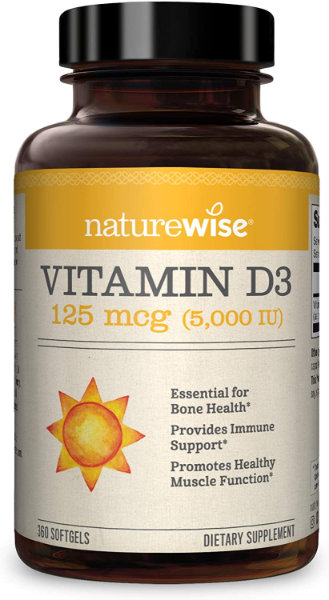Low Vitamin D in the Winter – Not Good For Your Immune System

Winter. Fewer hours of daylight. Cold. People indoors instead of outside getting some sun. Ever heard of low vitamin D? You may be one of the many who has low vitamin D. And that can potentially attribute to a weaker immune system.
Where I live in New Hampshire, during the shortest day of the year, there’s only about 8 hours 50 minutes of daylight according to suncalc.org. That leaves about 16 hours of darkness!
Wait, it gets worse… some regions tend to be cloudy a-lot. I live in a mountainous region. Climate conditions often produce clouds, and that doesn’t help one’s chances to get what little sun there is during the winter months.
Additionally, during the winter, the sun is too low in the sky anyway.
In the U.S., nearly everyone is vitamin D deficient while living above 37 degrees north of the equator.
The Mayo Clinic estimates up to ~ 50% of the general population may be vitamin D deficient.
Sunlight on our skin produces Vitamin D (actually converts to D3).
Here’s an interesting resource:
Harvard School Of Public Health | Vitamin D
Get Outside When It’s Sunny
Although not effective in northern latitudes during the winter, get outside in the sun during the other seasons. Soak up that vitamin D! Let your face, arms, and body absorb those wonderful rays of sunshine. It will lift your spirits too.
While at work, get outside for a time during your lunch break. Take a walk.
Open all the shades and curtains in the house. Let that sun in.
[ Read: Vitamin D Equivalent versus Sun Exposure Time ]
Did you know that the “Front Line COVID-19 Critical Care Alliance” recommends Vitamin D3 as part of their overall prevention protocol? (Along with Zinc, Quercetin, Vitamin C, and B-complex) (and !vermectin if you can get it).
[Read: Covid-19 Management & Vitamin Supplement List ]
Vitamin D3 Supplement
If it’s winter time, or any time, you can take a Vitamin D supplement.
I’m currently taking a 5,000 IU softgel tablet at lunch (it’s a fat soluble vitamin) along with a K2 vitamin (assists proper absorption). This is especially important during the winter.
“The Vitamin D Council recommends that adults with minimal sun exposure take 5,000 IU of D3 daily to reach optimal levels. This recommendation is based on research that shows that 97% of people will attain levels above 30 ng/ml at this dose, without risk of toxicity.”
~ naturewise vitamins
THE most popular and best reviewed is from NatureWise. Here’s a one year supply:
NatureWise (5,000 IU)
(view on amzn)

What’s the “3” in Vitamin D-3?
Vitamin D3 is the form of vitamin D that is synthesized by the skin when exposed to the sun ( ultraviolet light/UVB).
The Best Thing For Low Vitamin D
Go to the free state of Florida during the winter!!
[ Read: Vitamin C – Fruits & Vegetables ]
